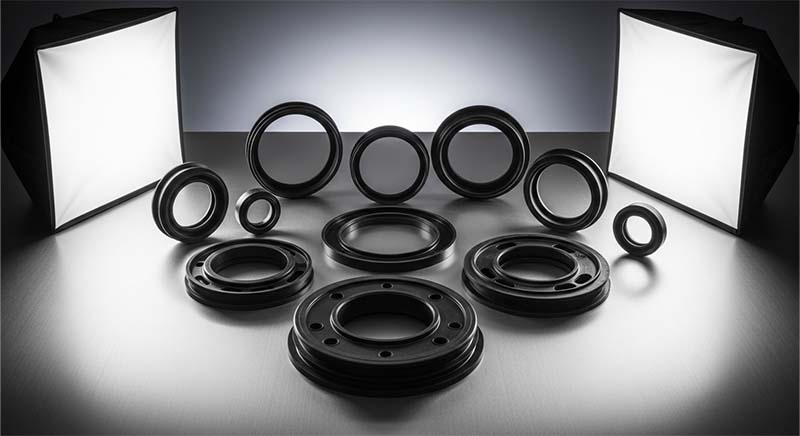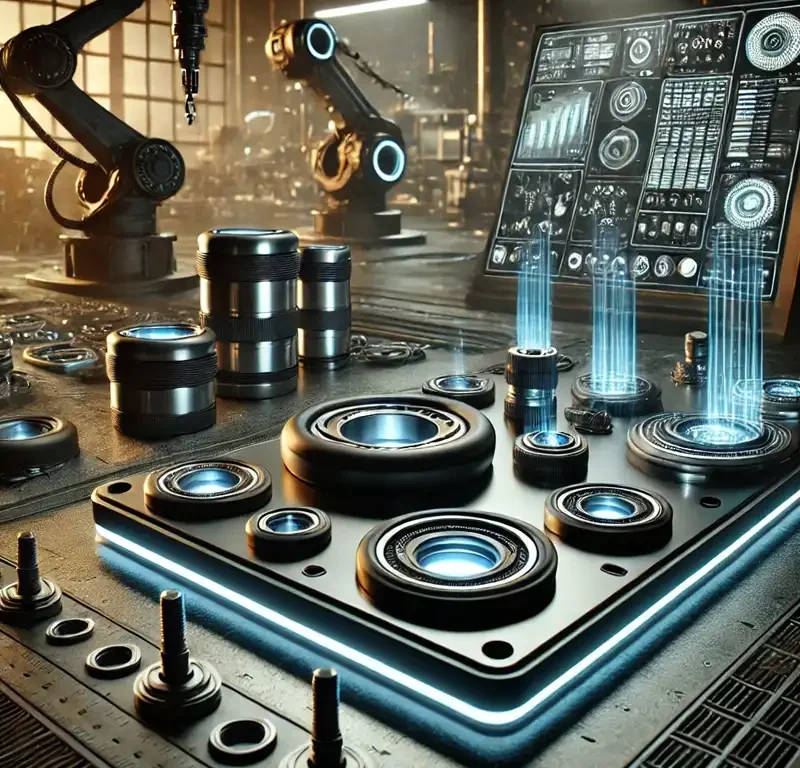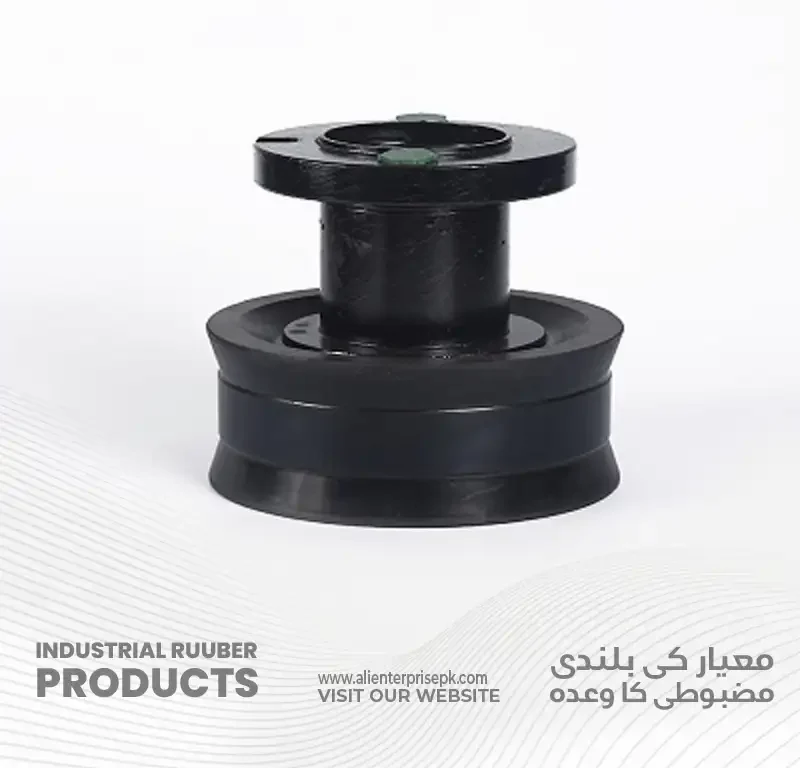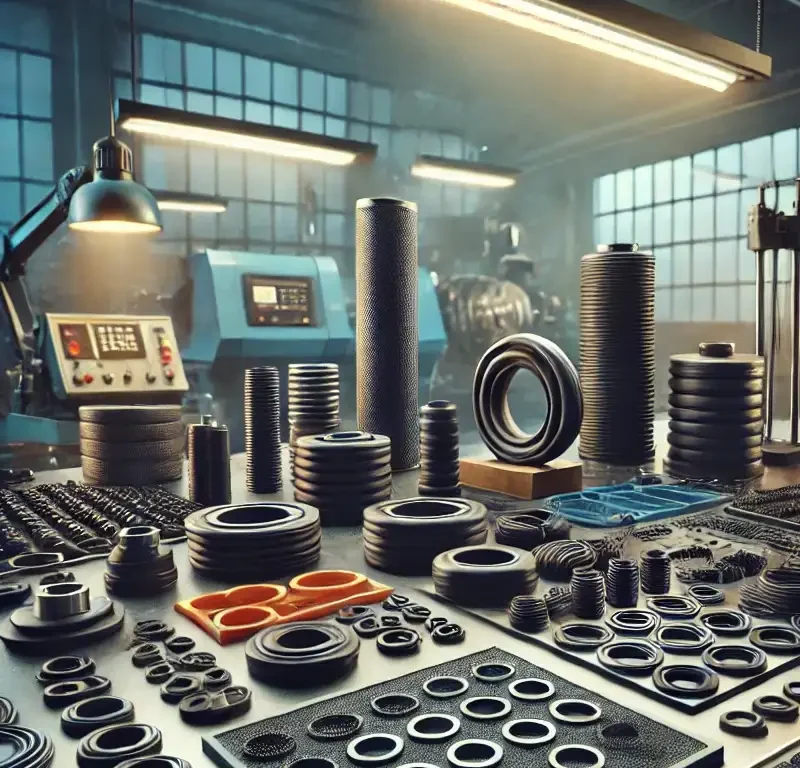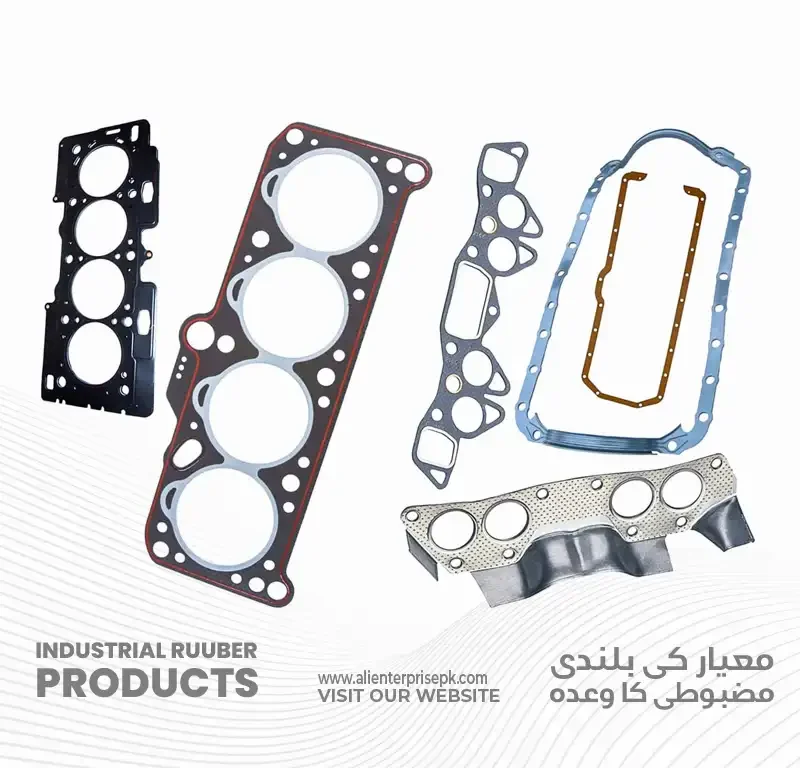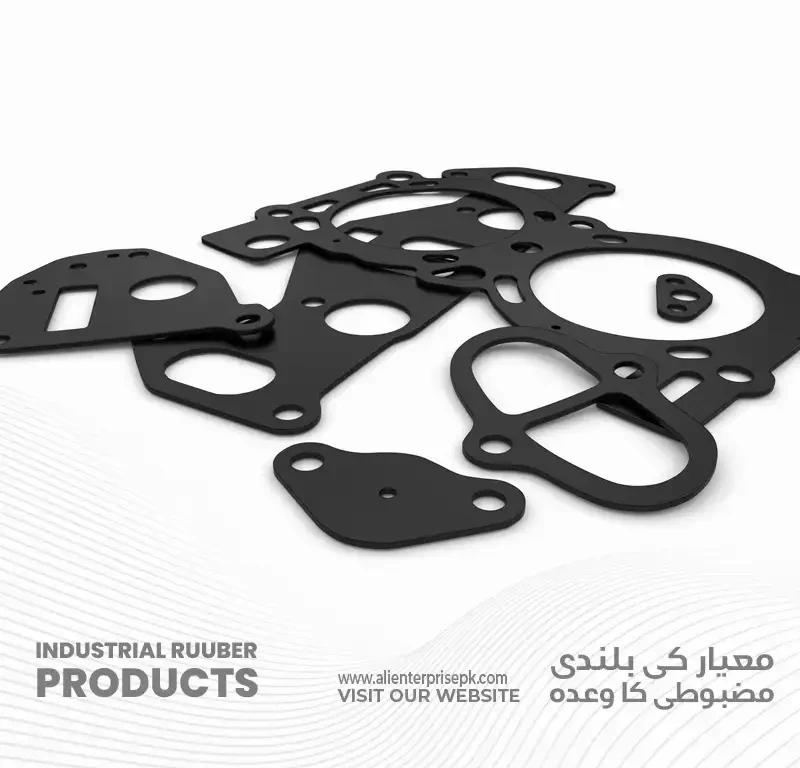
Shocking Truth: The Floor That’s Saving Lives in Hospitals!
August 15, 2024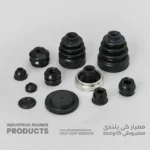
Revolutionize Your Industrial Operations with Ali Enterprises’ Innovative Rubber Solutions
October 5, 2024Introduction Rubber flooring is a versatile and sustainable choice for various applications, offering numerous advantages. Known for its durability, eco-friendliness, and ease of maintenance, rubber flooring has become popular in residential, commercial, and industrial spaces. This article explores the many benefits of rubber flooring and why it is an excellent choice for those seeking long-lasting, sustainable flooring options.
1. Durability and Longevity
One of the standout features of rubber flooring is its durability. Rubber, by its nature, is highly resistant to wear and tear, making it perfect for high-traffic areas such as gyms, schools, hospitals, and factories. It can withstand heavy loads, regular foot traffic, and harsh conditions without losing its form or quality. This durability means that rubber flooring can last for decades with proper care, making it a cost-effective solution in the long run.
2. Eco-Friendly Choice
Rubber flooring is a sustainable option for those concerned about environmental impact. Many rubber flooring products are made from recycled materials, particularly recycled rubber tires. This recycling process not only reduces waste but also minimizes the use of non-renewable resources. Additionally, rubber flooring is recyclable at the end of its life cycle, ensuring minimal environmental impact. Its natural insulating properties can also reduce energy costs, making it an environmentally conscious choice.
3. Comfort and Safety
Rubber flooring provides excellent cushioning, which can reduce fatigue, especially in workplaces where people stand for long periods. Its soft surface absorbs impact, making it a safer option in areas prone to falls, such as playgrounds, gyms, and hospitals. Rubber’s slip-resistant properties further enhance safety, making it ideal for wet areas like kitchens, bathrooms, and pool surroundings.
4. Low Maintenance and Easy Cleaning
Unlike other flooring types that require rigorous maintenance, rubber flooring is easy to clean and maintain. Its non-porous surface repels water and stains, preventing the growth of mold and mildew. A simple mop and mild detergent are enough to keep it looking clean and fresh. Furthermore, rubber’s ability to resist scratches and scuffs ensures it retains its aesthetic appeal over time.
5. Versatile Design Options
Rubber flooring comes in a wide variety of colors, textures, and patterns, allowing for customization in any space. Whether you’re looking for a sleek, modern look or something more playful for a children’s playroom, rubber flooring can be tailored to suit your design preferences. It can also mimic other materials, such as stone or wood, while providing the additional benefits of rubber.
6. Noise Reduction
Another significant advantage of rubber flooring is its ability to dampen sound. This is particularly beneficial in environments such as offices, gyms, or multi-story buildings where noise reduction is crucial. Rubber flooring absorbs sound waves, preventing them from traveling, which helps in creating quieter and more peaceful spaces.
7. Thermal Insulation
Rubber is naturally insulating, helping maintain comfortable temperatures within a space. This can contribute to energy savings, especially in climates with extreme temperatures. The insulation properties of rubber flooring also make it comfortable to walk on, even in cooler environments.
8. Ideal for High-Traffic and Industrial Areas
Industries that require durable and reliable flooring, such as automotive, manufacturing, and healthcare sectors, often turn to rubber for its robustness. Rubber’s resistance to chemicals, oils, and heavy machinery makes it ideal for industrial settings. Additionally, its anti-vibration properties are beneficial in areas where machinery is operated, reducing noise and improving working conditions.
FAQs
Q1: Is rubber flooring suitable for home use?
Yes, rubber flooring is suitable for residential use, especially in areas like gyms, basements, playrooms, and kitchens.
Q2: How long does rubber flooring last?
With proper maintenance, rubber flooring can last 20 years or more, making it a long-term investment.
Q3: Can rubber flooring be used outdoors?
Yes, some types of rubber flooring, such as rubber pavers or mats, are designed specifically for outdoor use and can withstand weather conditions.
Q4: Is rubber flooring environmentally friendly?
Yes, many rubber flooring products are made from recycled materials and are recyclable at the end of their life cycle.
Q5: What are the main maintenance requirements for rubber flooring?
Rubber flooring requires minimal maintenance. Regular sweeping and mopping with a mild detergent will keep it clean and looking fresh.



